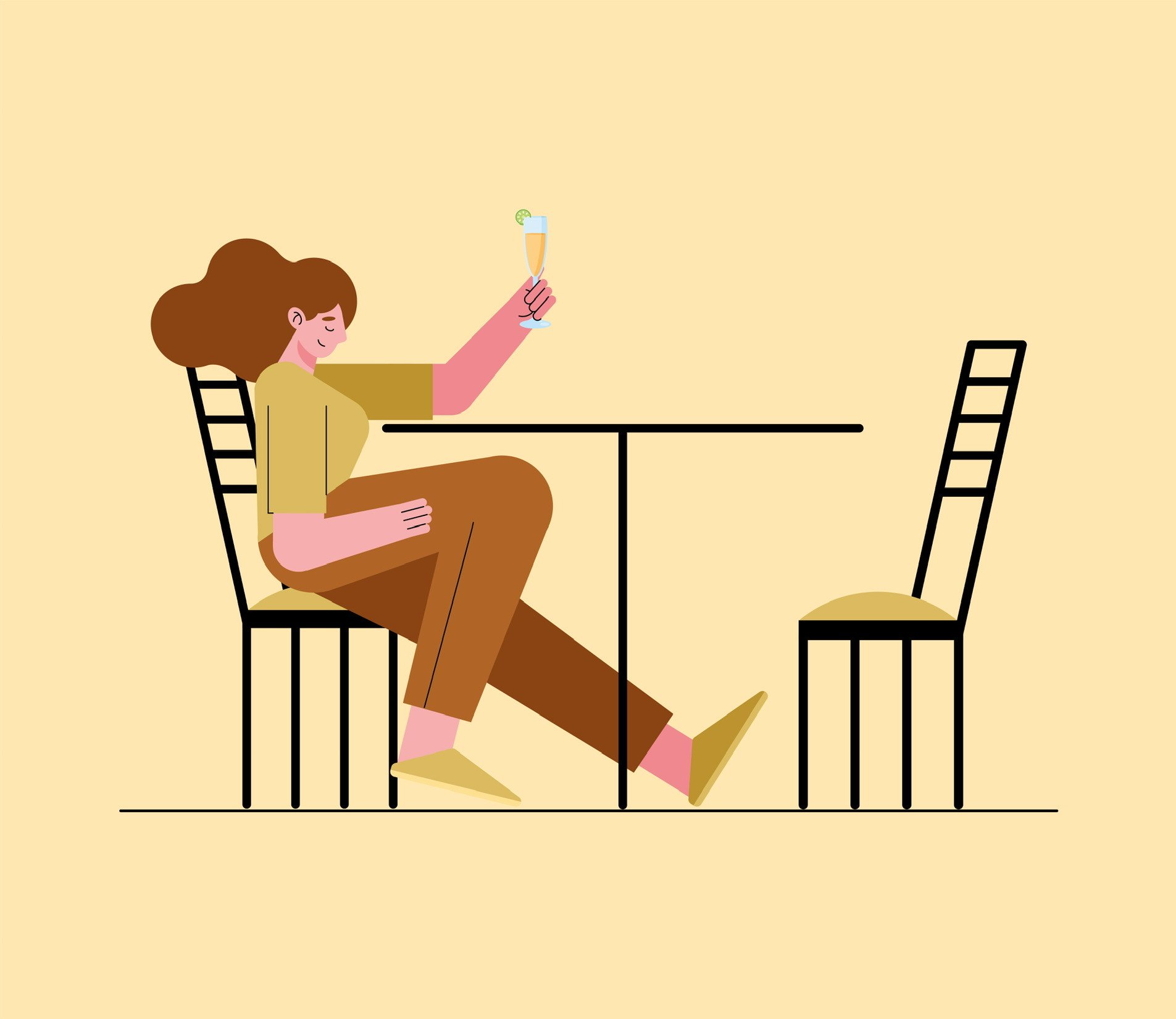How I overcame my fear of eating out alone—and why we should all be doing it
I used to be terrible at doing things on my own. Arriving at events. Speaking up in lectures. Ringing the doctors. Going to the doctor. Spending three hours making small talk with an enthusiastic hairdresser. In company, these things were a breeze, but alone—alone they were suddenly a breathless, anxious challenge. The problem wasn’t being in my own company - I’ve always liked to spend time alone, something that’s only become more enjoyable as I’ve got older - the problem was with my perception of what it meant to be ‘alone’ which, back then, was equivalent to ‘sad’.
Eating alone in a restaurant was the ultimate example of this. I still have to have words with myself when I see elderly people eating alone, to remind myself that they’re probably not holding back tears of loneliness, they’re probably just enjoying their sandwich. My concern for them is just a projection of the concern I have for myself. I don’t want people to look at me like that, to worry that I’m merely putting on a brave face while eating my sad, lonely little meal.
My anxieties aren’t totally unfounded, though. As a woman in the UK, eating out alone is not hugely common. When I lived in Paris, for example, I received the same treatment eating alone as I did in company—something I found very freeing. Eating alone as a woman just wasn’t something to be noticed over there. Women sat alone, they smoked alone, they ate alone, then they went on their merry way. Here in the UK, however, there is this idea that women sitting alone are waiting for company or waiting to be rescued—usually by a man. This can make the already challenging act of sitting alone feel all the more nerve-wracking, because now we have to worry about declining someone’s advances.
But while it’s true that you won’t always get the same treatment eating alone as you would in a group in the UK, I don’t necessarily think that’s such a bad thing. For starters, there’s a code of conduct in a restaurant that doesn’t reach bars and nightclubs. You can’t simply pull up a chair when you see a woman dining alone, thank God. But there are other benefits, too.
The most obvious is that servers and staff are almost always much nicer to you. The other day, before attending a writing workshop, I took myself off for a cocktail and some bar snacks at The Ivy in Richmond. In the two hours that I sat alone at the bar, I was given a free portion of truffle chips, endless glasses of cucumber water, and the friendliest service I’ve ever experienced. From my perch overseeing the rest of the restaurant, I could see that no one else was being treated with quite such consideration. Whether they felt sad for my aloneness or empowered by it, I still got the free chips.
My transition from ‘Hairdresser Anxiety’ to ‘Easy Solo Cocktails’ didn’t happen overnight. Like anything, I had to practice to get good at being alone in public. In truth, it still doesn't always feel easy, but I’ve decided that I’m not going to let that unease stop me from doing it. I find the idea of waiting for company to try a new restaurant or visit a new attraction really dull. If I have the time, money, and desire—why would I not just go? Last year, I got very into solo trips, taking myself for spontaneous weekends away in the UK. Situations like these force you to be okay with eating alone. It’s that or stay in and starve.
Something that helped me feel more at home while eating out alone was the idea that I could make my own rules. I think we sometimes have this idea that, when eating in a restaurant, we need to act as though we have company. You wouldn’t pull a book out or scroll through your phone while eating in company, for example. But the joy of eating alone means that - actually - you can do exactly that! I once went to Wagamama's, ordered a two-course meal with a cocktail, and consumed it all while watching Netflix on my phone, barely looking up from the screen. Alright, perhaps you wouldn’t do this in a Michelin-star restaurant (good old Wags), but my point is that you’re not obligated to sit up straight and stare at the walls when eating out alone. You can lean on certain crutches that make you feel less self-conscious, like your phone, a book, or a journal.
For me, though, the best part of learning to eat out alone is the other freedoms that come with it. If dining alone was once the ultimate show of vulnerability for me, then everything else now pales in comparison. I regularly attend workshops, events, creative pursuits, journeys, appointments, and so many other things completely, serenely alone. It doesn’t bother me anymore.
In fact, it’s become really quite delicious.
_
Alanna Duffield is a writer and poet whose work explores womanhood, human connection, and nature. Her creative writing has been published by the BBC, Dear Damsels and Aurelia Magazine. Her personal essays have been published by Cosmopolitan, Metro, and Stylist. Alanna has also performed her poetry at Luxembourg Gallery, Mayfair, and she was a headline performer for VERSES, a London-based poetry collective. You can find more of her work on Instagram at @alannaduffield

